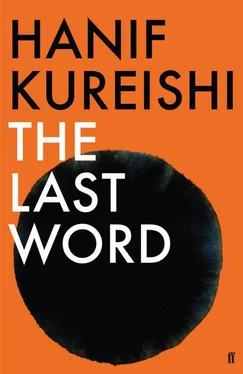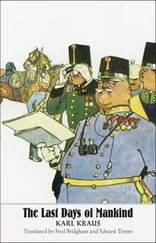Rob yelled, ‘Get a gun and fire off a few rounds from the window. When the goats get the idea you mean business they’ll retreat to their stables.’
‘They’re not goats.’
‘Horses?’
‘They’re birds, I think. It’s cold in the room, the light doesn’t work, the window doesn’t shut and at about four o’clock in the morning these animals — what are they, bats, geese, ducks, fish, pigs; anyway most of Noah’s ark — start up this atrocious animal disco. I’m trapped in a rectum here!’
‘You fucking wuss, complain to your agent, not to me. Thank God I didn’t put you forward for the Freya Stark gig, redoing her African walks or wherever it was the old girl traipsed around.’
Harry said, ‘Is it true you’ve given Liana creative control of my book?’
Rob put the phone down.
Before retreating to his room, Harry began to go out into the yard and smoke a joint to help him sleep. Then he lay in bed thinking about Peggy, with a notebook and pen beside him. This was how he often had ideas. But sentences from the ‘miseries’, as he called the diaries, began to circulate in his head. One night, after he’d been there for ten days, these whispers appeared to have their own agency, or to be coming from another source, a hubbub he couldn’t turn off.
Harry got up, stumbled across the room, and put on the dim light. There she suddenly was: Peggy perched on the foot of the bed, perilously thin, exhausted but fiercely energetic, and glowing.
‘What will you say about me, Harry?’ she said. ‘Will I be defined by my bitter end? Isn’t there more to me than that? And who are you to judge?’
Peggy had been a quiet, articulate, academic girl with well-off alcoholic parents who had taught French at private schools. After university she’d worked for a small literary magazine and been introduced to Mamoon by the editor in one of the Bloomsbury pubs he frequented. In Harry’s view Mamoon, whose school-teacher father had trained him hard to win scholarships, was traumatised by being sent to an English public school and then to Oxford. There wasn’t a moment when he didn’t feel awkward and out of place amongst the English toffs his father was so keen for him to join, though the father also claimed, at the same time, to hate the British. On his first date with Peggy he had embarrassed himself by getting into the front of a black taxi next to the driver, and shuffling about trying to find the seat, until the outraged driver threw him out.
In cold, sooty London, a city full of people who believed Indians to be backward and inferior, while the sexy white kids were dressing like Syd Barrett, Peggy helped Mamoon negotiate the master race of Belgravia for whom he was a failed white man barely acquainted with cutlery, and persuaded him to meet her friends in the literary world. Half the people he charmed: he was sympathetic, and was considered to have class and quiet wit. The other half he offended with his arrogance. But his father wanted him back, and wrote all the time begging him to return. He would have gone; he couldn’t see a way forward. It was Peggy who persuaded him to stay in London and make a career as a writer, one of the most difficult choices a man like him could have made. It was she, when he wasn’t getting enough work done in London, who pleaded with her parents to loan them the money to buy the cottage in Somerset.
As couples are at the start, they were together all the time, exploring their new neighbourhood, and driving around the rest of the country, visiting second-hand bookshops. Mamoon then took her to India for a few months. Meanwhile, intellectually, she never let him off the hook; she even accused him of having a lazy, ‘playboy’ mind, which stung him into arguing and debating back. He started to really think.
It was here, in the late sixties, in the library she began to create in the house — the one which he was still developing — that he began to read ferociously, to ‘catch up’. She was a European, an internationalist, who loved Miles Davis and Ionesco; they learned about wine and listened to Boulez while smoking Gauloises. Like a lot of English intellectuals, she was exhausted and frustrated by English isolationism. She worshipped D. H. Lawrence, but otherwise the established view of writing was dry and scholastic: pointless talk of ‘lit crit’, ‘the canon’ and Leavis, and then, later, of Marxism. Harry was learning that Peggy formed Mamoon as much as his parents had, and his scorn for totalitarian — mostly Marxist — political and religious systems, inherited from her sixties libertarianism, had remained unchanged. Eventually he drained her, it was thought, and wanted to be gone; she wanted to settle. After, for years, they just stayed ‘suspended’.
And so, addressing the ghost, Harry said, ‘I will be fair and compassionate. No blame or excuses. Just the facts and a warm voice. You spoke for yourself, in the diaries. You were clear. You can go now, Peggy, please. You don’t have to worry, I’m not from the newspapers.’
‘But Harry, I’ve been waiting to see you for a long time,’ she said. ‘Don’t you know me?’
‘Aren’t you Peggy?’
‘Look at me closely, if you can bear to.’
It was when he recognised his mother and heard her say, ‘Oh Harry, it’s so good to see you. I want to hear every detail of your life after I left. Was it awful? Have you been okay? Can we talk now?’ that he jumped out of bed, fled soundlessly along the corridor past the rooms where Liana and Mamoon retired, and out of the house and into the cooling night air.
In the yard he sat helplessly in the family 4 × 4, pulling his eldest brother’s scarf from the glove compartment, putting it around his neck and hugging it to himself. His brothers, at his father’s insistent urging, had made him sell his motorbikes, which he had only done when they promised to replace his wheels with the loan of this vehicle.
It was turning out to be useful. It was twenty minutes’ drive to the village pub, where he’d never before been. He had no idea how he’d be received. But he needed to see people who weren’t yet ghosts.
Every morning, once upon a time, Harry’s mother got up early to make him a cooked breakfast, before taking him to school. Whenever they were in the kitchen together, she’d talk over her shoulder about films, politics, men, poltergeists, neighbours, feminism, dreams — a surreal stream of hard-to-follow continuous conversation for which, it was understood, he would be the link man.
She kissed him a lot, or would suddenly sob. She had a mad laugh which could be alarming, or would suddenly say, ‘You have no idea how I hate this middle-class shit!’ Sometimes, to illustrate a point, she’d enact a scene, doing the voices. Or she’d sing: pop, folk, opera, with, a good deal of the time, a joint burning in the ashtray. She’d quote Lautréamont so often he remembered the words even now, ‘Silent, foul spiders/spin their webs in the base of our brain.’
Most evenings she went to see friends, or to parties or the theatre or dance. Apparently she hated boredom, as well as the tyranny of possessiveness and control. Harry’s father had once said, with some irony, that she considered sexual opportunity to be the vanguard of political liberation. She also condemned her husband for not believing in the sixties’ idea that madness brought wisdom. For her, it was not the purpose of living to be as sane as possible, and she believed her husband to be ‘a policeman of the soul’, since he considered it his work to make people sane, as others might want to free people from the tyranny of alcohol. But it could only make them duller, she believed. How many people was she? How many people could we be?
Harry didn’t know what he thought about any of this. He did remember, though, that most nights, at the end of her life, she crept into his bedroom, and he slept in her arms, almost like a young lover, until morning. Was that love, or madness? Later, a friend of his mother’s said: Harry, you are very much like her; of high intelligence, you can understand anything. Both of you are bright but brittle — and you’ll go down under the slightest knock, worrying and fearing failure.
Читать дальше












